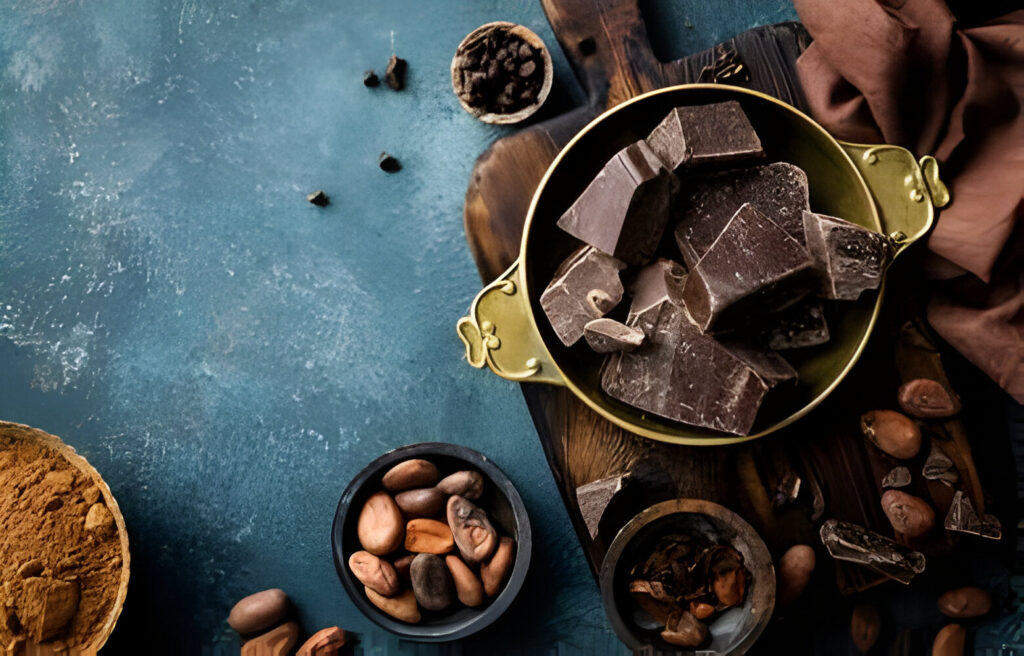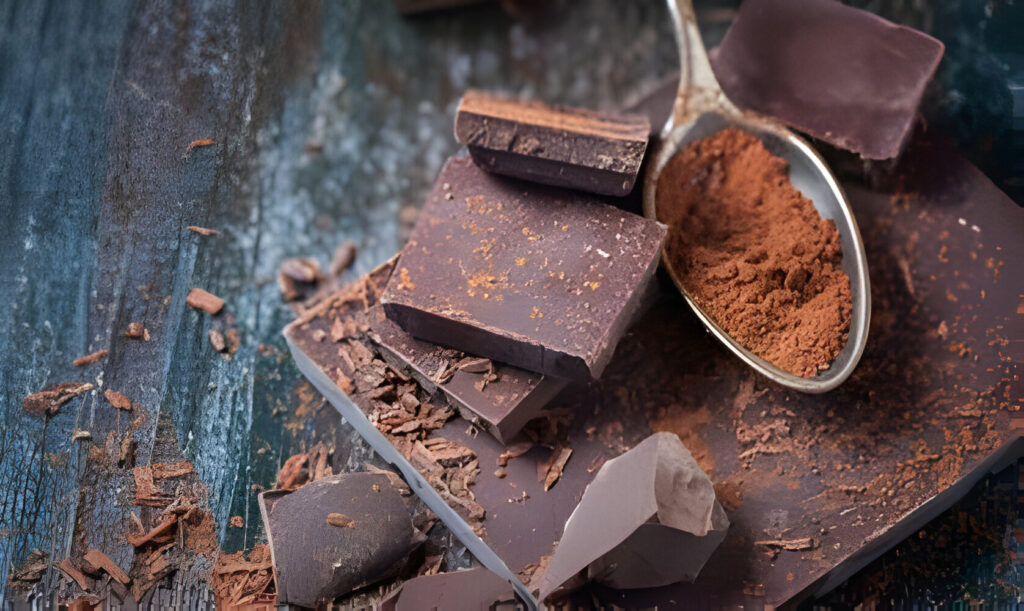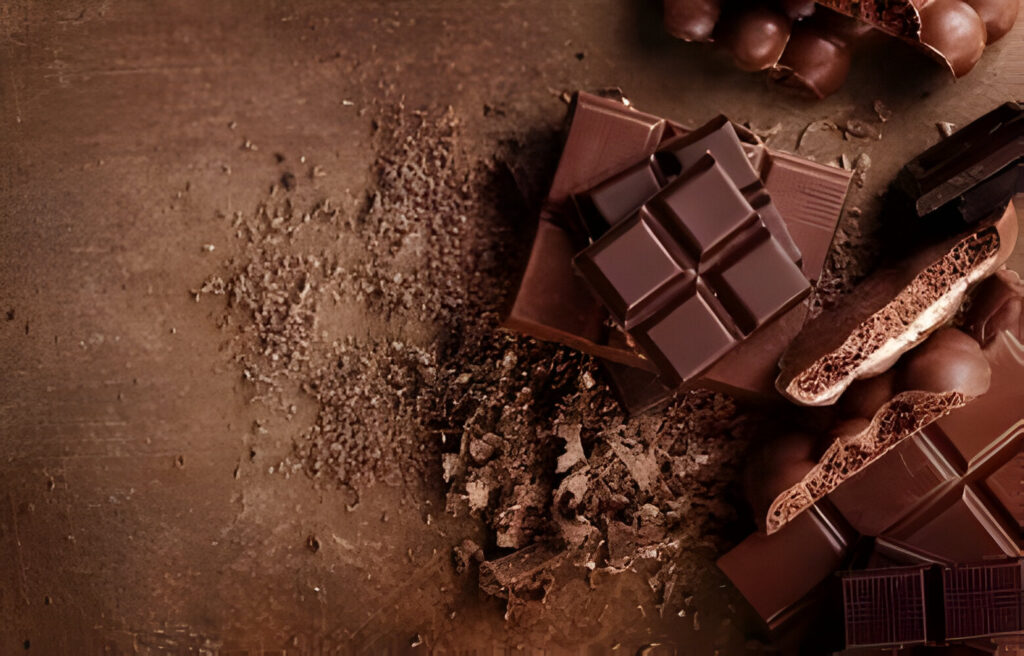The Essence of Dark Chocolate Quality

Dark chocolate, a luxurious treat savored by many, stands out not just for its rich taste but also for its health benefits. However, not all dark chocolates are created equal. The quality of dark chocolate plays a pivotal role in its taste, texture, and health advantages. Understanding what defines high-quality dark chocolate can transform your eating experience and even your health.
Cocoa Content: The Heart of Chocolate
First and foremost, cocoa content is a critical determinant of dark chocolate quality. High-quality dark chocolates boast a cocoa content of at least 70%. This high percentage ensures that you’re getting a product packed with the antioxidants and flavors native to cocoa beans. Moreover, chocolates with higher cocoa content typically contain less sugar, making them a healthier choice for indulgence. As a rule of thumb, always check the cocoa content on the packaging before making a purchase. The higher the percentage, the richer and more beneficial the chocolate.
Source Matters: Bean Origin
Equally important is the origin of the cocoa beans. The quality of dark chocolate significantly depends on where the beans come from. Cocoa beans harvested in regions like Ivory Coast, Ghana, and Ecuador are renowned for their superior quality. These regions offer the ideal climate and soil conditions for growing cocoa, resulting in beans with unparalleled flavor profiles. Artisan and high-end chocolate manufacturers often highlight the bean origin on their packaging. They know that discerning consumers appreciate the distinct taste nuances brought by beans from different locales.
The Craft of Chocolate Making
Lastly, the manufacturing process plays a crucial role in determining the quality of dark chocolate. The best dark chocolates undergo a careful process of fermentation, drying, roasting, and conching. Each step is meticulously calibrated to enhance the chocolate’s flavor and texture. For instance, proper fermentation and roasting bring out the beans’ inherent flavors, while conching – a process of continuously mixing and aerating the chocolate – develops its smoothness. High-quality dark chocolates are often produced by chocolatiers who oversee these processes closely, ensuring that each batch meets their exacting standards.
In conclusion, the journey to finding the perfect dark chocolate starts with understanding what defines its quality. From the cocoa content to the origin of the beans and the meticulousness of the manufacturing process, each element plays a significant role. Next time you reach for a bar of dark chocolate, remember, the details make all the difference. This knowledge not only enriches your taste experience but also guides you toward choices that offer the best in flavor and health benefits.
Health Benefits of Premium Dark Chocolate
Dark chocolate isn’t just a treat for the taste buds; it’s also a boon for health when chosen wisely. High-quality dark chocolate, rich in cocoa, offers a plethora of health benefits. From heart health to mental well-being, the advantages of incorporating this dark delight into your diet are significant and supported by research.
A Heart-Healthy Delight
One of the most celebrated benefits of premium dark chocolate is its positive impact on heart health. High in flavonoids, particularly epicatechin, dark chocolate has been linked to lower blood pressure and improved blood flow to the heart and brain. Flavonoids are known for their antioxidant and anti-inflammatory properties, contributing to a reduced risk of heart disease. Studies suggest that moderate consumption can significantly decrease the likelihood of cardiac events. Thus, including a small portion of dark chocolate in your daily diet can be a heart-healthy choice, especially when it contains over 70% cocoa.
Mood Enhancement and Cognitive Function
Besides its physical health benefits, dark chocolate also shines as a mood enhancer. It contains phenylethylamine (PEA), the same chemical your brain creates when you feel like you’re falling in love. PEA encourages the brain to release endorphins, thus improving mood and reducing stress levels. Furthermore, the flavonoids in dark chocolate may contribute to improved cognitive function, including better attention, processing speed, and memory recall. It’s a brain food that not only delights with its taste but also supports mental sharpness and emotional well-being.
Antioxidant Powerhouse
Dark chocolate is a powerful source of antioxidants. These include polyphenols, flavonoids, and catechins, among others. Antioxidants are crucial for fighting off oxidative stress caused by free radicals, which can lead to cellular damage and contribute to aging and various diseases. The antioxidant capacity of dark chocolate is unmatched, even surpassing that of superfruits like blueberries and acai berries. By choosing dark chocolate with a high cocoa content, you’re not just indulging in a delicious snack; you’re also providing your body with essential compounds that support overall health.
Incorporating high-quality dark chocolate into your diet offers not just a momentary pleasure but also long-term health benefits. Its impact on heart health, mood, cognitive function, and antioxidant capacity makes it a valuable addition to a balanced diet. Remember, the key is moderation and opting for dark chocolate with a high percentage of cocoa to reap the full health benefits while minimizing added sugars and fats.

How to Identify High-Quality Dark Chocolate
Choosing the right dark chocolate is essential for savoring its full benefits and flavors. Knowing how to identify high-quality dark chocolate ensures you enjoy not only a superior taste experience but also the health advantages associated with its rich cocoa content. Let’s explore the key factors to look for when selecting the finest dark chocolate.
Check the Labels Carefully
The first step in identifying high-quality dark chocolate is to read the labels meticulously. Quality chocolates list cocoa or cocoa mass as the first ingredient, indicating a high cocoa content, which is a hallmark of premium products. Avoid chocolates where sugar leads the ingredients list, as this suggests a lower cocoa content and a higher sugar level, diminishing the chocolate’s health benefits and flavor intensity. Moreover, the presence of real cocoa butter instead of vegetable fats or oils is a sign of a quality product, enhancing its taste and texture.
Ingredients Matter
The purity of ingredients in dark chocolate speaks volumes about its quality. Look for chocolates with a minimal number of ingredients, ideally just cocoa mass, cocoa butter, and a small amount of sugar. High-quality dark chocolate often eschews artificial flavors, preservatives, and unnecessary additives. The simpler the ingredient list, the more you can expect a pure and intense chocolate experience.
Sensory Evaluation: Taste, Smell, and Texture
Finally, engaging your senses is a definitive way to assess the quality of dark chocolate. High-quality dark chocolate boasts a smooth, glossy surface and a firm snap when broken, indicating proper tempering. Its aroma should be rich and inviting, with notes ranging from fruity to earthy, depending on the bean origin. Upon tasting, the chocolate should melt smoothly in your mouth, revealing complex flavor profiles that linger pleasantly. Bitterness is a characteristic of cocoa, but it should balance with the chocolate’s natural flavors, not overwhelm them.
In conclusion, identifying high-quality dark chocolate involves careful examination of labels, ingredient purity, and engaging your senses. By following these guidelines, you can distinguish premium dark chocolates that offer the best taste and health benefits. Remember, the effort to select the finest dark chocolate enriches your eating experience and supports a healthier lifestyle.
Top Dark Chocolate Brands for Connoisseurs
For those who appreciate the finer things in life, selecting the right dark chocolate brand is crucial. High-quality dark chocolate offers not only superior taste but also significant health benefits. In this section, we’ll explore some of the top dark chocolate brands that stand out for their commitment to quality, sustainability, and exceptional flavor.
Bean-to-Bar Excellence
One key indicator of premium dark chocolate is the bean-to-bar process. This approach involves chocolatiers overseeing every step of chocolate production, from sourcing the cocoa beans to crafting the final product. Brands that adhere to this method often produce chocolate with more distinctive and complex flavor profiles. Look for bean-to-bar chocolates to experience the true artistry behind chocolate making.
Organic and Fair-Trade Commitments
Today’s consumers increasingly value ethical and sustainable production practices. Top dark chocolate brands often prioritize organic and fair-trade sourcing. These practices ensure that cocoa farmers receive fair compensation, contributing to the sustainability of chocolate production. Moreover, organic chocolates are free from pesticides and other harmful chemicals, offering a cleaner, healthier indulgence.
Spotlight on Standout Brands
- Brand A: Known for its single-origin chocolates, Brand A sources cocoa beans from specific regions to highlight unique flavor profiles. Their commitment to direct trade with farmers ensures high-quality, ethical products.
- Brand B: This brand is celebrated for its innovative flavor combinations and artisanal production techniques. Using only organic ingredients, Brand B crafts chocolates that are both daring and delicious.
- Brand C: Focused on sustainability, Brand C utilizes eco-friendly packaging and renewable energy in its production processes. Their chocolates are not only good for the palate but also for the planet.
In choosing a dark chocolate brand, consider not only the taste but also the values and practices behind it. The brands mentioned above represent just a fraction of the high-quality options available to discerning chocolate lovers. By selecting one of these premium brands, you not only enjoy a superior tasting experience but also support ethical and sustainable chocolate production.
Incorporating Dark Chocolate into Your Diet
Dark chocolate is more than just a treat; it’s a versatile ingredient that can enhance your diet in delicious and healthy ways. With its rich flavors and proven health benefits, finding creative ways to include dark chocolate in your daily routine can make for an enjoyable and beneficial experience. Here, we explore several methods to incorporate high-quality dark chocolate into your diet.
Mindful Snacking
One of the simplest ways to enjoy dark chocolate is as a mindful snack. Choose a high-quality dark chocolate with a high cocoa content for a rich, satisfying experience. Break off a small piece and let it melt in your mouth, savoring the complex flavors and smooth texture. This practice not only satisfies your sweet tooth but also helps you appreciate the nuances of fine chocolate.
Creative Pairings
Dark chocolate pairs wonderfully with a variety of foods. Try combining it with fruits, such as strawberries or bananas, for a sweet and healthy dessert. For a more savory option, dark chocolate and almonds or walnuts create a satisfying snack that’s both nutritious and indulgent. These pairings not only enhance the flavor of the chocolate but also provide additional health benefits from the fruits and nuts.
Culinary Creations
Incorporating dark chocolate into your cooking and baking is another excellent way to enjoy its benefits. Use it in homemade granola bars, blend it into smoothies, or melt it down for a decadent sauce over healthy desserts. Dark chocolate can also add a rich depth to savory dishes, such as mole sauces. By experimenting in the kitchen, you can discover new and exciting ways to enjoy dark chocolate in your meals.
Portion Control
While dark chocolate is beneficial, moderation is key. To reap its health benefits without overindulgence, pay attention to portion sizes. A small square of dark chocolate can satisfy cravings and provide antioxidant benefits without adding excessive calories or sugar to your diet.
In conclusion, incorporating dark chocolate into your diet can be both delightful and healthful. Whether enjoyed on its own, paired with complementary flavors, or used as a culinary ingredient, dark chocolate offers versatility and health benefits. By practicing moderation and choosing high-quality products, you can make dark chocolate a beneficial part of your daily routine.

Conclusion: Embracing the Dark Side of Chocolate
As we’ve explored the multifaceted world of dark chocolate, it’s clear that this beloved treat offers much more than just a momentary pleasure. From the intricate process of crafting high-quality dark chocolate to the myriad ways it can enrich our diets and health, dark chocolate stands as a testament to the confluence of art, science, and nutrition. In closing, let’s recap the key takeaways and extend an invitation to deepen your chocolate journey.
The Significance of Quality
Quality is paramount when it comes to dark chocolate. We’ve learned that the cocoa content, origin of the beans, and manufacturing processes significantly impact the flavor, texture, and health benefits. Opting for high-quality dark chocolate ensures a superior tasting experience and maximizes the nutritional value.
Health Benefits Unveiled
Dark chocolate is not only delicious but also nutritious. With its high content of antioxidants, it offers heart health benefits, mood enhancement, and can even lower blood pressure when consumed in moderation. Embracing dark chocolate as part of a balanced diet can contribute to overall well-being.
A Versatile Ingredient
Dark chocolate’s versatility in culinary applications is boundless. Whether enjoyed as a mindful snack, paired with fruits and nuts, or incorporated into savory and sweet dishes, it offers a unique way to elevate meals and snacks. Remember, moderation is key to enjoying its benefits without overindulgence.
An Invitation to Explore
We encourage you to explore different brands, origins, and types of dark chocolate. Discovering your personal preferences can be a delightful journey of taste and health. Share your experiences, favorite brands, or recipes with fellow chocolate enthusiasts to spread the joy and knowledge of high-quality dark chocolate.
In conclusion, dark chocolate is a rich tapestry of taste, tradition, and health benefits. By choosing quality, embracing moderation, and exploring the diverse world of dark chocolate, you can enjoy this indulgent treat in a way that benefits both palate and health. Let your exploration of dark chocolate be guided by curiosity and a desire for quality, and you’ll find that this journey is as rewarding as it is delicious.
Frequently Asked Questions About Dark Chocolate
When it comes to dark chocolate, many people have questions about its benefits, how to choose the best variety, and ways to incorporate it into their diet. Below, we address some of the most common queries with concise, informative answers that not only enhance understanding but also improve search engine visibility.
What Is Dark Chocolate?
Dark chocolate is a form of chocolate containing cocoa solids, cocoa butter, and sugar, without the milk found in milk chocolate. High-quality dark chocolate has a high percentage of cocoa, offering deeper flavor and more health benefits than its milk or white chocolate counterparts.
How Does Dark Chocolate Benefit Health?
Dark chocolate is rich in antioxidants, such as flavonoids, which can improve heart health by lowering blood pressure and reducing heart disease risk. It also contains minerals like iron, magnesium, and zinc. However, moderation is key, as it also contains sugar and calories.
How Can I Identify High-Quality Dark Chocolate?
Look for dark chocolate with a cocoa content of 70% or higher. The ingredients list should be short, featuring cocoa mass, cocoa butter, and sugar, without any added fillers or artificial flavors. Additionally, ethically sourced chocolate with fair trade or organic certifications often indicates higher quality.
Can Dark Chocolate Be Part of a Healthy Diet?
Yes, when consumed in moderation, dark chocolate can be part of a healthy diet. Its rich content of antioxidants and minerals contributes to overall health. Opt for small portions and consider it a treat rather than a staple.
How Can I Incorporate Dark Chocolate Into My Diet?
Dark chocolate can be enjoyed on its own, used in baking, or paired with fruits and nuts for a nutritious snack. Try melting it into your morning oatmeal, shaving it over fresh fruit, or adding it to your favorite trail mix.
Does Dark Chocolate Contain Caffeine?
Yes, dark chocolate contains small amounts of caffeine. The exact amount can vary, but it’s generally much less than what’s found in coffee. Sensitive individuals should consume it earlier in the day to avoid sleep disturbances.